Role of DRE in Rebuilding Bengal after Super Cyclone Amphan
Role of DRE in Rebuilding Bengal after Super Cyclone Amphan
The Super Cyclone Amphan left West Bengal, our home state devastated. The storm severely affected 85 million people. That's the entire population of Germany! The cyclone resulted in losses of approximately US$13 Billion to property, crops, and every other arena of life. 40% of Sundarban Mangrove delta region was ravaged by the decade’s worst storm.
All our fears of climate change played out right in front of our eyes and left Kolkata and numerous villages unrecognizable. Along with some other like-minded organizations and more than 200 volunteers, SwitchON Foundation initiated the ‘Rebuild Bengal’ initiative with a vision to positively impact at least 1 million lives.
As during every natural disaster, relief material was identified as the most pressing need.
Over the last month, we were able to serve over 20,000 people, by distributing essential commodities across 5 districts and 4 islands of the Sunderbans.
We also replanted over 150 uprooted trees in the Maidan Area of Kolkata - also known as the lungs of Kolkata.The destructive impact of the super cyclone left Kolkata and many adjoining villages without power for weeks – which also meant no water or phone & Internet connectivity, among other essential services. Even a month after the cyclone, there are still many places without access to power and clean energy for cooking. During our visit to the Sunderbans, what struck me the most was the resilience and thankfulness of people we reached out to. I really feared how these communities, who were already pushed to the brink due to COVID-19, will cope with the widespread destruction to their fields and ponds – which is the only source of livelihood for them. While the need for lighting and mobile phone charging was evident with many partners in the Rebuild Bengal initiative distributing solar lights with mobile chargers, there was an equally important need for pumping, which was not understood upfront. Due to the cyclone, Saline water had entered and contaminated ponds and fields across villages. With no access to electricity and escalating prices making diesel unaffordable, the locals were unable to pump out polluted water that left fishes dead and crops damaged. This has had and would continue to have a disastrous impact on the incomes of the marginal farmers, who heavily depend on agriculture and fishery.
At SwitchON Foundation, we have been advocating for use of solar pumps - which we have demonstrated, to be ready for scale, in a market mode. Seeing the above situation, we immediately shipped 4 mobile solar pumps to 2 Islands of Patharpratima & Hingalganj block in the districts of North 24 Parganas and South 24 Parganas, respectively. The SwitchON team together with ONergy Solar’s team, taught the local operators how to assemble, use and maintain these pumps, which could be carried from one pond or field to another to pump out polluted water. The local farmers were mobilized, and between themselves, they were encouraged to agree on charges payable to the operator for his service of pumping polluted water out and irrigating fields with fresh water. We have involved the local women SHGs in the initiative as well to monitor the local operator and manage the usage of the mobile solar pumps and collections from the usage.
As the Chinese Proverb goes “Give a man a fish and you feed him for a day; Teach a man to fish and you feed him for a lifetime”. Quite literally, solar pumps have been helping the marginal farmers of Sunderbans to start fishing and growing their crops again.
What is evident from this experience is that Decentralized Renewable Energy (DRE) has a significant role in rebuilding villages, livelihoods and incomes of local communities that have been severely affected by the natural calamity. However, merely sending these products to the cyclone hit regions is not enough. These need to be integrated in the development / response plan in communities, villages and towns in such a way that it becomes a natural way of life for people so that during natural calamities, life is not thrown out of order.
The role DRE can play is tremendous, and it is time we start recognizing it. Such natural disasters have become the order of the day and we can’t keep depending on rewiring and erecting uprooted poles.
The government has spoken about being “atmanirbhar” and the first step towards that should be decentralizing basic necessities such as energy and food production. The only possible way to do it is using sustainable technologies and practices so that we don't negatively impact our natural resources that are already under severe stress.
The destruction caused by Cyclone Amphan was certainly very painful to see, but it reiterated the inspiration with which we set up SwitchON Foundation in 2008. There has never been a more opportune time to advocate for sustainable technologies and practices that we have been doing for more than a decade. It's time now to implement everything we have advocated for.
Let us collaborate to rebuild our communities, rethink our mindless consumption habits and reboot our lives.
Written by: Vinay Jaju, Co-Founder, SwitchON Foundation


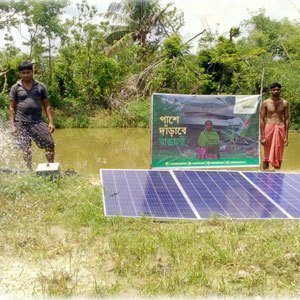
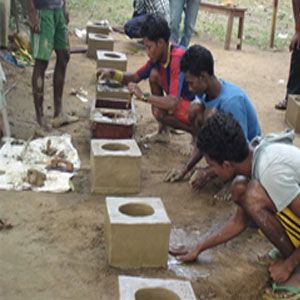
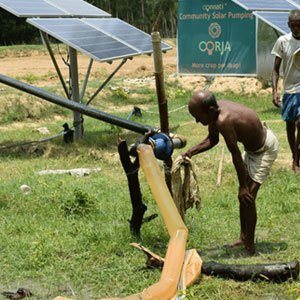
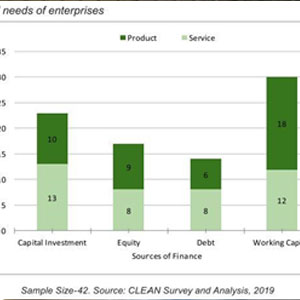
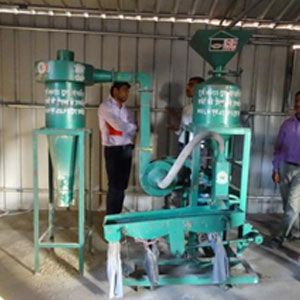
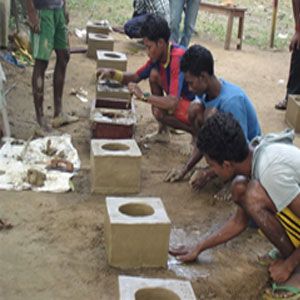







xonier
good article
adasd
asdasd